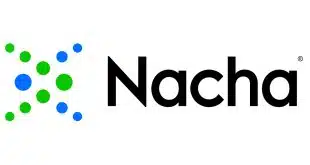Citing a payments industry that is united in its opposition to the Credit Card Competition Act, research from the Congressional Research Service questioning the benefits of the legislation, and suspect support for the bill among members of Congress, the Electronic Payments Coalition says it is primed to continue its fight against the CCCA in 2024.
“We feel we ended 2023 in pretty good shape with no vote on the CCCA after merchants were promised one,” says Richard Hunt, executive chairman of the Electronic Payments Coalition. “In 2024, we’ll be ready to beat back any attempt to get this bill passed, even if it gets attached to another bill.”
The CCCA would require financial institutions with $100 billion or more in assets to enable at least one network other than Visa or Mastercard for credit card transaction processing. The bill, initially introduced in 2022, was reintroduced in the Senate earlier this year by its primary sponsors Senators Richard Durbin (D-Ill.) and Roger Marshall (R-Kan.).

Hunt attributes the payment industry’s unified opposition to the CCCA to the legislation itself. “The CCCA has galvanized the payments industry and put us all on the same page,” says Hunt, who joined the EPC in August. “In 2010 when the Durbin [Amendment] was introduced, the banking industry was coming off the great recession and there was a [perceived] need to extract blood from the industry and it worked, but with the CCCA merchants went over the line.” The amendment, part of the Dodd-Frank Act, established routing and pricing measures for debit transactions.
In the years since, Hunt says payments players recognized that merchants were preparing to “take a shot at revamping the credit card industry” which turned out to be the CCCA. As a result, the payments industry realized it needed to become as aggressive in its lobbying efforts against the CCCA as proponents of the legislation are in promoting the bill, Hunt says.
One of the more aggressive tactics adopted by the EPC is the use of influencers on social-media channels. “Communications have changed, you can’t get your message out using just traditional communications channels,” Hunt says. “We aren’t doing anything different than the opposition. Merchants such as Home Depot, Target and Walmart use influencers to spread their message about the CCCA, too.”
Responding to Hunt’s claims that large merchants are using influencers to drum up public support for the CCCA, Doug Kantor, an executive committee member at the Merchants Payments Coalition and general counsel for the National Association of Convenience Stores, says such claims need to be backed up with proof. He would be surprised, he says, if merchants were using influencers to drum up public support for the CCCA. Kantor adds the MPC is not using influencers as part of its lobbying efforts for the CCCA.
One asset the payments industry gained in its efforts to defeat the CCCA is findings from the Congressional Research Service that raise questions about the benefits and potential consequences of the bill, says Hunt. The Congressional Research Service is a public-policy research institute of Congress that operates within the Library of Congress.
Among the questions raised by the CRS is whether merchants would choose an alternative network to route transactions when consumers would prefer transactions be routed over networks that enable their card to be accepted at most any merchant.
“This does not necessarily incentivize merchants to switch networks. Further, it is unlikely a small business would be aware of a smaller network, and even if it did offer payment on that network, the odds that a bank would issue a card enabled for that exact network are relatively small,” a CRS report on the issue released earlier this month says.
One unintended consequence of passing the CCCA, the CRS report concludes, is “there is nothing stopping the major retailers from creating a payment network that cuts out the major payment networks and lowers interchange costs.”
Hunt argues legislators in Congress have not voted on the CCCA because it is too controversial. “A lot of members of the Senate don’t want to vote on it because of the political implications. It’s too contentious,” he says.
Kantor blames any political jitters legislators may be feeling on the bill’s opponents. “The payment industry’s strategy is to make legislators look at the CCCA as a political hot potato,” he says.





